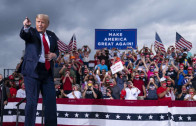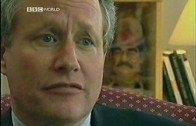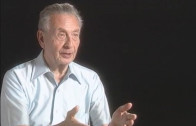The Trump Show
In the United States and elsewhere, both sides of politics have revelled in spectacle and image for many decades. But when Donald Trump, the billionaire reality-television host became president, a new escalation of image and spectacle reformed dominant culture. The Trump Show is a series that explores the beguiling spectacle of the Trump years, through interviews with former White House staffers, media managers, campaign directors, and other personalities that were close to Trump during his presidency. The series documents how image has now replaced substance in a totalising way, and how false constructions seek to pave over reality through a culture that is deeply rooted in hyper-individualism, fierce and corrupt competition, ideological dogmatism, and post-modern delusions.
Series
When Trump became president, he brought with him a bold new approach. With no experience in government or political affairs, he instead brought a career as a reality TV star and the image of a smart-talking businessman to the spectacle of politics. The political and media empires didn’t know what to do with this figure. The previous cheat sheets didn’t work any longer, and in most instances, backfired completely. This episode gives the viewer a front-row seat to the first 18 months of Donald Trump as president, as explained through key players including Steve Bannon, Sean Spicer, Omarosa Manigault Newman, and Anthony Scaramucci, who each take us behind the scenes of their various roles.
This episode begins with the 2016 scandal where Trump’s history of sexual abuse and predatory behaviour were revealed. The “grab them by the pussy” recording threatened to destroy Trump’s chances of reaching office, but when Trump responded with his honed manipulation, it solidified his strategy that bullying counter-responses play well with his audience. Trump brazenly withstands pressure from the press, even in the face of new revelations from his former lawyer Michael Cohen, who paid women for their silence against Trump’s sexual abuse and predatory behaviour. Six members of Trump’s campaign team were convicted of crimes including fraud and obstruction of justice between 2017 and 2019, while Trump’s core base stick by him closer as his defiance speaks to his most vocal supporters. The playbook appears resistant to what would ordinarily be huge crises for a sitting president. But these are unprecedented times. Difficulties mount for Trump as the FBI inquiry into Russian election interference gains pace, but Trump brings in Rudy Giuliani and a change of strategy, which sees the case played out over the muddled airwaves. The episode shows the astonishing power of Trump “the survivor,” whose very boldness defies scrutiny, and when the Mueller report also exonerates the president, Trump emerges more confident than ever.
Emboldened by his exoneration in the Russia investigation, Trump is more audacious than ever. He invites the Taliban to Camp David, suggests buying Greenland from Denmark, and attracts more drama during Hurricane Dorian. His base of support also expands and is further emboldened in this chapter, adding to the spectacle of untouchable arrogance. But Trump’s character and approach to the presidency are put under scrutiny yet again. This time, when Trump is accused of coercing Ukraine to investigate Joe Biden. The powerful Christian lobby shores up support for Trump in the political arena and beyond, using their might to bolster his hold on the Republican Party. He also survives impeachment. Then COVID hits. And the Black Lives Matter movement heats up again after another death in police custody. Protests highlight the language of division that is dominating the airwaves, reflecting a political landscape that has been dramatically shifted in the past four years. As the election nears, the question is whether Trump has lost control of the narrative or whether his political savvy, fighting instincts and understanding of the nature of power and performance can push him to another victory.
After losing the 2020 election, Donald Trump’s last months as president are entirely spent trying to overturn the result, culminating in an insurrection against the United States Congress by Trump’s followers. Friends, advisers, and observers tell the story of Trump’s final days in office, from packed rallies held as the Coronavirus besieges the country, to riots on Capitol Hill. Trump directs a record number of capital punishment deaths, as well as granting pardons or other forms of legal immunity to his criminal friends. The legacy left behind is one that illuminates the concerns of the age: a politics driven by symbolism, maniacal domination, information manipulation, corrupt cronyism, and the new tribalism; all cemented in a saturated culture of image—the society of the spectacle in peak. A legacy that both sides of politics now long inhabit.




